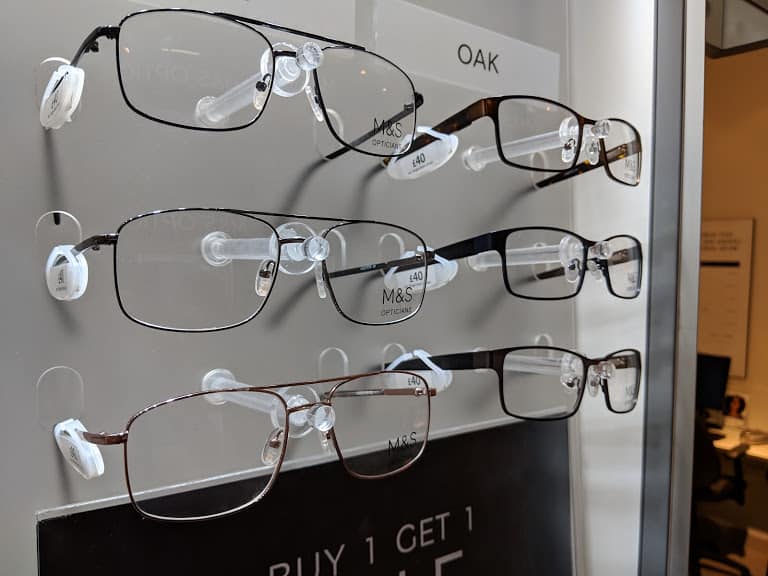Can Weight Loss Really Affect Your Vision and Eyesight?
Losing weight is often about feeling better, improving health, and gaining confidence. But amidst the excitement of dropping pounds, have you noticed changes in your eyesight or vision? You may be wondering, “Can weight loss really affect my eyes?” The answer isn’t as simple as a yes or no, and that’s what we’re here to unpack.
This blog dives into how weight loss, whether intentional or due to illness, might impact your vision. Stick around to learn what to watch out for, why it happens, and how to keep your health (and your eyesight) in top form during your weight loss journey. If you are at all unsure consult your optician or doctor.

How Weight Loss Can Impact Vision and Eyesight
Weight loss can affect your body in unexpected ways, including your eyes. Whether it’s shedding pounds or changes in your diet, here are the main ways your vision may be impacted.
1. Vitamin Deficiencies
When we diet, it’s often about restricting certain foods to meet a calorie goal. But cutting too much, especially without balance, can lead to vitamin deficiencies that affect your vision.
- Vitamin A: This powerhouse vitamin helps keep your retinas healthy. A lack of it can lead to night blindness or even dry eyes.
- Omega-3 Fatty Acids: Often found in fish, nuts, and seeds, these support tear production and prevent dry eye syndrome.
- Vitamin E and C: These antioxidants are essential for protecting your eyes from damage and help maintain overall eye health.
Not getting enough of these nutrients? You might find your vision gets blurry or your eyes feel constantly dry.
2. Sugar Levels and Vision Changes
If your weight loss is tied to managing conditions like diabetes, you may notice that your blood sugar levels improve as you drop the extra pounds. This is amazing news! But there’s a catch. Sudden changes in blood sugar levels can temporarily or permanently affect your vision.
For example, unstable blood sugar can cause the lenses in your eyes to swell, leading to blurry vision (hello, unwanted surprise while driving). The good news? Once your blood sugar stabilises, your vision often improves too.
3. Fat Loss Around the Eyes
Did you know there’s actually a layer of fat around your eyes that helps cushion and protect them? With rapid or significant weight loss, that fat can shrink, leading to a slightly sunken appearance and even discomfort for some people. While this is more of a cosmetic issue, it’s something many people notice during or after dramatic weight loss.
4. Side Effects of Low-Calorie Diets
Are you following an ultra low-calorie diet? While effective for short-term weight loss, it may cause issues like lightheadedness or dizziness. Vision disturbances like seeing spots, blurry images, or even fainting can occur if your body doesn’t get enough nutrients or glucose to fuel your brain and eyes.
5. Dehydration and Eye Health
It’s easy to overlook water in your pursuit of health goals, but dehydration can have a negative impact, not just on your energy but also on your eyes. Dehydration can quickly cause dry eyes, blurred vision, and irritation, which is why staying hydrated is essential during weight loss.
Conditions Where Weight Loss May Help Vision
Weight loss doesn’t just have potential downsides, it’s also a game-changer for some people’s eye health. Losing weight can improve or even prevent certain eye-related conditions tied to excess weight.
Diabetes-Related Vision Issues
Obesity and diabetes often go hand in hand. Diabetes can lead to diabetic retinopathy, a condition where high blood sugar damages blood vessels in the retina. Weight loss can improve blood sugar control, reducing the risk of this serious condition.
Glaucoma
Excess body weight is sometimes associated with increased pressure in the eyes, which raises your risk of glaucoma. Losing weight and maintaining a healthy BMI can reduce this pressure, protecting your vision in the long run.
Sleep Apnoea
While sleep apnoea primarily affects breathing, it’s also linked to glaucoma and other eye problems. Weight loss can relieve or even resolve sleep apnoea, reducing your risk of related vision issues.
Tips to Protect Your Vision During Weight Loss
Now that you know both the ups and downs weight loss can bring to your eyesight, here are some practical steps to protect and maintain your vision while staying on track with your health goals.
1. Go for a Balanced Diet
Don’t just focus on cutting calories; make sure your meals are rich in nutrients that support eye health. Foods like carrots, spinach, salmon, and almonds are rich in vitamins and antioxidants your eyes need.
2. Stay Hydrated
Keep your water bottle handy! Staying hydrated supports tear production and keeps dry eyes at bay, especially if you’re working out regularly.
3. Take Supplements If Needed
If your diet doesn’t naturally include all the vitamins and minerals you need, consider adding a multivitamin or an omega-3 supplement to fill the gap.
4. Regular Eye Checkups
Always prioritise routine eye exams. Your optometrist can catch any early signs of issues related to your weight loss or overall health.
5. Watch for Warning Signs
Pay attention to any new symptoms in your eyes, like blurriness, pain, or irritation. If something feels off, don’t wait, consult your doctor immediately.
6. Consult a Dietitian
If you’re unsure which foods to include in your weight loss plan, a dietitian can help you design a balanced meal plan that supports both your weight and vision goals.
Celebrate Your Progress Without Sacrificing Eye Health
Weight loss can be a fulfilling and healthy choice, but it’s essential to keep an eye on all aspects of your well-being, including your vision. By ensuring your body gets the nutrients and care it needs, you can tackle your health goals feeling strong, focused, and ready to take on the world.
Got concerns about your eye health during weight loss? Book an appointment with your optometrist, and while you’re at it, treat yourself to some spinach salad (your eyes will thank you).






